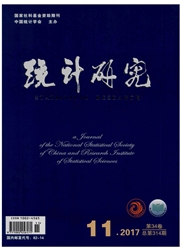

 中文摘要:
中文摘要:
地方环保投入随污染程度的正向改变是缓解环境污染持续恶化的内在财政机制。根据API等级分类规则,本文设计了多断点回归模型检验空气污染对地方环保投入的影响。结果表明较低水平的空气污染会导致环保支出比重的下降;而较高水平的空气污染并不存在这种效应。分样本回归分析了地方政府环保支出对空气污染的"逆调节"反应机制,结果表明:环保模范城市的环保支出比重不存在断点效应,而非环保模范城市的断点存在显著负效应;在省会及副省级城市不存在断点效应,而在其他城市断点效应显著存在。这表明地方政府在治理空气污染问题上存在异质性动机,建立和完善地方政府环保投入的激励与约束机制仍是治污的首要条件。
 英文摘要:
英文摘要:
Local environmental inputs' positive change with the pollution levels is the internal financial mechanism which could alleviate the problem of environmental pollution. According to the classification rules of API, the research makes use of multiple regression discontinuity model to test the impact of air pollution on the local environmental protection expenditure. Empirical results show that: the aggravating of low level air pollution could cause a decline of environmental expenditure rates, but the high level air pollution could not. It analyzes the "inverse regulation" reaction mechanism based on the sample regression, and finds that there are not the cutoff effect on the environmental expenditure rates in the model cities for environmental protection, while there are the negative cutoff effects on the non-environmental protection model cities. In the provincial and vice-provincial cities there are no cutoff effect, while the breakpoint effect is still obvious in other cities. This suggests that it exists the heterogeneity among the local governments in solving the pollution problems. It is imp~ortant to build and improve the incentive and constraint mechanism for the local environmental protection expenditure to control pollution.
 同期刊论文项目
同期刊论文项目
 同项目期刊论文
同项目期刊论文
 期刊信息
期刊信息
